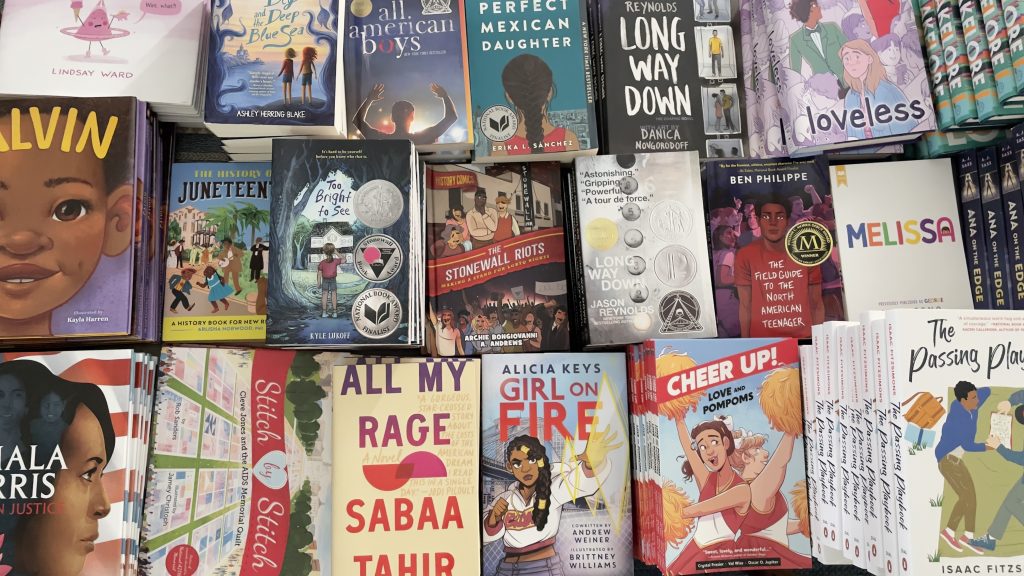States
The Long-Term Effects Of Florida’s War On Books And Black History On Education

The Long-Term Effects Of Florida’s War On Books: Florida’s public education system is struggling with the effects of a restrictive legislative agenda that limits classroom discourse on race, gender, and sexual orientation. The state’s contentious legislation has sparked a heated discussion about diversity education in Florida.
The “Stop W.O.K.E.” Act, HB 7, has been central to this acrimonious debate for restricting classroom speech on sensitive social subjects. An Advanced Placement (AP) African American Studies course was rejected due to this rule, indicating a disturbing disrespect for underrepresented voices and narratives in Florida’s schools.
HB 1557, the “Don’t Say Gay” legislation, bans gender identity and sexual orientation education for children. Complementing these efforts, HB 1467’s severe examination and preapproval of classroom reading materials has removed many books from public school systems, generating disruption and unhappiness among instructors and students.
Andrew Spar, President of the Florida Education Association, stressed the interconnectedness of these statutes and how their ambiguous wording causes uncertainty and mistrust in educational institutions. As Florida has the second-highest number of banned books in the nation, concerns about students’ psychological well-being and academic development abound, with reports of children crying over the sudden disappearance of beloved books from school libraries.
The limitations have also caused disillusioned teachers to leave, worsening the state’s teacher shortage. This brain drain and experts’ unwillingness to discuss race-specific themes are creating an educational hole that may affect the state’s grasp of its own social and historical dynamics.
As the state struggles with a culture of fear and diminishing faith in its educational institutions, collective action to protect truth and inclusion is necessary. Florida’s academic integrity is at stake for future generations and various populations, from grassroots mobilization to legal action.
Florida’s War On Books: Racism And Education Censorship
Recent legislative moves in Florida have sparked a controversy about whether they promote censorship and erasure in the school system. The “Stop W.O.K.E.” Act (HB 7) has been criticized for restricting racial and gender topics in schools. The act’s imprecise language and far-reaching effects have hindered important talks on racism and excluded critical narratives from classrooms, leaving pupils with an inadequate grasp of racial dynamics in society.
Black History And Educational Gap
The erasure of Black history and representation in Florida’s school system has become a significant issue within the “Stop W.O.K.E.” Act and associated restrictions. The state’s withdrawal of an AP African American Studies course shows its disregard for varied perspectives and underrepresented voices in the classroom. This removal, along with the systematic banishment of books featuring Black protagonists and authors, has created a troubling educational void, preventing students from engaging with the rich tapestry of Black history and culture and preventing a holistic and inclusive educational experience.
Effects On Black Students And Education
Florida’s contentious legislative trajectory has hurt children’s educational opportunities and Black academics’ and instructors’ experiences. Many Black scholars are self-censoring and avoiding critical race debates due to restrictive regulations and a fearful workplace. This tendency is restricting academic independence and eroding varied educational viewpoints, creating a deficit in state racial dynamics and histories.
As Florida struggles with its contentious educational laws, campaigners and educators are mobilizing to maintain inclusive education and promote racial understanding. The state’s educational landscape requires aggressive measures to prevent censorship and create a more inclusive and fair learning environment for all kids, regardless of race or culture.
Read Also: NFL Dismissed Reporter Jim Trotter Sues League For Racial Discrimination
Emotional Cost And Cultural Exclusion
Students, especially minority ones, have suffered emotionally from Florida’s strict educational policies. With the elimination of books with different characters and themes, kids feel excluded, and their cultural identities invalidated. Students have expressed dismay and distress at finding no literature that resonates with their lived experiences, leading to a disconnection from learning and a deep-seated belief that their stories and histories are unworthy of recognition in education. This emotional toll impairs students’ academic engagement and adds to cultural isolation that hinders inclusive and empathic learning.
Loss Of Trust And Academic Freedom
Eroding confidence between instructors and students is a significant problem as Florida’s educational censorship continues. Restrictive rules and a culture of fear have made instructors wary of discussing race and prejudice. This lack of confidence has hurt student-teacher relationships, academic freedom, and open discourse in schools. Educators’ self-censorship and unwillingness to discuss delicate themes have created tension and anxiety, restricting free speech and hurting students’ critical thinking and analytical abilities.
Community Engagement And Advocacy
Despite Florida’s educational turmoil, grassroots organizations and advocacy campaigns have inspired communities to defend tolerance and diversity. Organizations have united to fight academic censorship and promote varied narratives and histories via community-led rallies and joint advocacy campaigns. These mobilizations have raised the voices of concerned parents and educators and highlighted the need for collective action in defending truth and academic integrity. These initiatives promote community support and preserve diverse educational experiences, creating a more equitable and inclusive educational landscape that celebrates cultural diversity and empowers students to engage with the world critically.













You must be logged in to post a comment Login